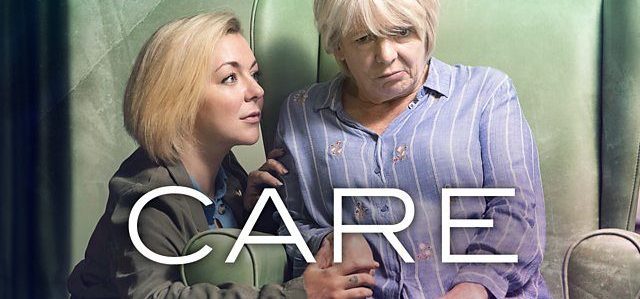Care is the BBC’s plea for the NHS
As Christmas rolls around for another year, our televisions are naturally filled with heartwarming shows about family, love and the festive season. Christmas specials, classical old winter films and even the usual soap operas that grace our screens have an air of warmth to them, filling us with that cosy feeling that the Danish have captured in their concept of hygge.
And yet, the BBC’s new drama Care seems to aim for quite the opposite. The 90 minute drama, available on BBC iPlayer, sets out to highlight the realities facing some families who have suffered an unexpected blow. The show depicts the struggles of a single mother trying to cope with life after her mother has a stroke and is left with dementia.
Left to care for her mother on her own, Jenny struggles to know what to do – she can’t afford a good care home, she isn’t equipped to look after her increasingly frightened mother alone and her ex-husband and the NHS prove to be of little help. Care is anything but the warm family show that one would expect at this time of year. It is the BBC’s plea for the NHS; a cry for help for the service that so many families rely upon which continues to be underfunded and overstretched.
McGovern’s aim to spark a national conversation and call attention to this issue through his TV drama is unsubtle, brazen and, above all else, necessary
As a drama, Care captures the audience’s attention early on. Within the first few minutes, Mary (Alison Steadman) goes from a chirpy grandmother testing her granddaughters on their numeracy skills in the fish and chip shop to a suddenly unconscious driver in a car hurtling out of control. In the hospital, her confused and fearful crying and inarticulate mumbling is a stark contrast to the confident presence we had seen just moments earlier and it is all too obvious what has happened. As her two daughters, Jenny (Sheridan Smith) and Claire (Sinéad Keenan), are tasked with dealing with the aftermath of her stroke and navigating the bureaucracy of the NHS, the drama unfolds as a clear polemic about the current state of the NHS.
And this drama is by no means subtle in its political statement. Having rushed to the hospital immediately after hearing the crash, Jenny remembers she didn’t bring any cash with her to pay for the hospital parking. As she explains this to the attendant at the exit barriers (who barely looks up from his phone), she is simply told “then you can’t get out, love.”
The uncaring and unattached nature of this short exchange captures exactly what screenwriter Jimmy McGovern’s aims to highlight with this drama: that nobody really cares. Jenny’s deadbeat ex-husband is too busy being unemployed to help her with money and childcare as she gives up her job to care for her mother. At Mary’s discharge hearing the NHS staff are pushed for time and quickly reel off their assessment of Mary’s condition, altogether ignoring her increasing cries and growing agitation as she sits in front of them, keen to free up her bed in the hospital.
It is the BBC’s plea for the NHS; a cry for help for the service that so many families rely upon which continues to be underfunded and overstretched
Although there is a clear suggestion that there is a lack of time and appropriate care given, McGovern makes sure to emphasise that this is not the result of incompetent and uncaring staff, but rather a result of a system which is chronically underfunded. After Mary wanders off and goes missing the first night of her staying at Belle Vista, a nursing home which bears the (again, unsubtle and ironic) sign “Quality care and compassion you can trust”, McGovern launches his diatribe against the state of the NHS through the mouthpiece of one of the care workers.
A patient, she explains, was standing in a pool of her own urine because they could not afford enough incontinence pads. Mary managed to escape, she explains, because there are only three staff to look after 30 residents, some of whom have severe dementia. Yes, the standard of care isn’t good enough, she explains, but it is better than no care at all. And so they battle on.
At a time of the year when the importance of family has never been greater and when we are reminded of the sacrifices that public service workers make by working over the holiday period, Care emphasises the growing social problem that haunts the UK. As one of the most valuable and indispensable services, the continual under-funding of the NHS needs to be addressed. McGovern’s aim to spark a national conversation and call attention to this issue through his TV drama is unsubtle, brazen and, above all else, necessary.

Comments
Comments are closed here.